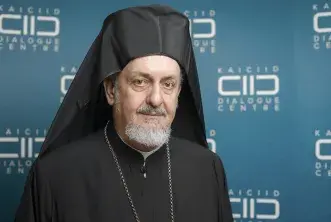Metropolitan Emmanuel: On the 70th Anniversary of the Universal Declaration of Human Rights

70 Years since the Universal Declaration of Human Rights
By: H.E. Metropolitan Emmanuel of France
The Orthodox Church is deeply concerned by the Universal Declaration of Human Rights (1948) as part of a broader conversation in which Eastern Christianity should provide an insightful contribution based on its historic experience and spiritual heritage. The Encyclical of the Holy and Great Council (2016) states: “A fundamental human right is the protection of the principle of religious freedom in all its aspects--namely, the freedom of conscience, belief, and religion, including, alone and in community, in private and in public, the right to freedom of worship and practice, the right to manifest one's religion, as well as the right of religious communities to religious education and to the full function and exercise of their religious duties, without any form of direct or indirect interference by the state.” (par.16)
The point of convergence of the Orthodox Church and human rights movements is its concern for human dignity, freedom and justice. The theological framework and the spiritual commitment of the Church in favor of Human Rights should help in articulating the paradox and contradictions between the universal protection of human dignity and aspects of Human Rights that focus on the individual rights reduced to an expression of individual autonomy, separated from and opposed to God.
The Orthodox Church insists on the fact that humans are relational beings, an image of God’s communion in which we can deepen the reality of coexistence, dialogue and freedom. Human rights are a legal reality expressing principles such as individual freedom, equality for all without exception, and human dignity. From these principles result more specific rights: freedom of conscience, freedom of thought, freedom of speech, freedom of the press, the right to private property, the right to safety. Then, more specific definitions organize the life of the city through economic, social and political rights. Religions have a crucial role to play in the future of human rights ideas and their implementation and realization in practice, to the common struggle of both the human rights movements and religions for human dignity, freedom, equality, justice and peace.

